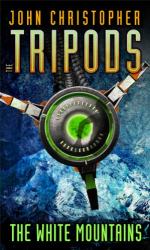|
This section contains 259 words (approx. 1 page at 400 words per page) |

|
The White Mountains Summary & Study Guide Description
The White Mountains Summary & Study Guide includes comprehensive information and analysis to help you understand the book. This study guide contains the following sections:
This detailed literature summary also contains Related Titles and a Free Quiz on The White Mountains by John Christopher and Samuel Youd.
Like most of Christopher's books for young readers, The White Mountains dramatizes painful truths about human nature and raises important questions about what makes life worth living.
Christopher believes that human beings are inevitably flawed, and that technological achievement is a mixed blessing in the hands of fallible people. Still, he holds out hope that strong individuals, bound together by a desire to protect freedom of thought and free will, may yet save humanity from its own worst impulses.
Christopher's brand of science fiction is less concerned with making fantastic scientific predictions than it is with exploring, in an imaginative way, very immediate human problems. In The Tripods Trilogy, of which The White Mountains is the first volume, alien invaders of Earth have gained almost complete control over humankind. The young protagonists of the trilogy must struggle painfully for the autonomy they desire. Freedom for them is neither comfortable nor safe, and its acquisition by no means guarantees happiness. The boys learn through bitter experience that they must struggle not only against the external forces that would oppress them, but also against their own selfishness, jealousy, pride, fear, and recklessness.
Christopher has a gift for creating memorable and evocative images in his fiction. The shining metallic Tripods with their strange hunting call and gleaming tentacles are haunting incarnations of power; the ruined cities of the ancients are apt symbols of failed technology and the decay of human knowledge; and the pastoral beauty of the village of Wherton recalls a simpler life made largely obsolete by technological progress.
Read more from the Study Guide
|
This section contains 259 words (approx. 1 page at 400 words per page) |

|



